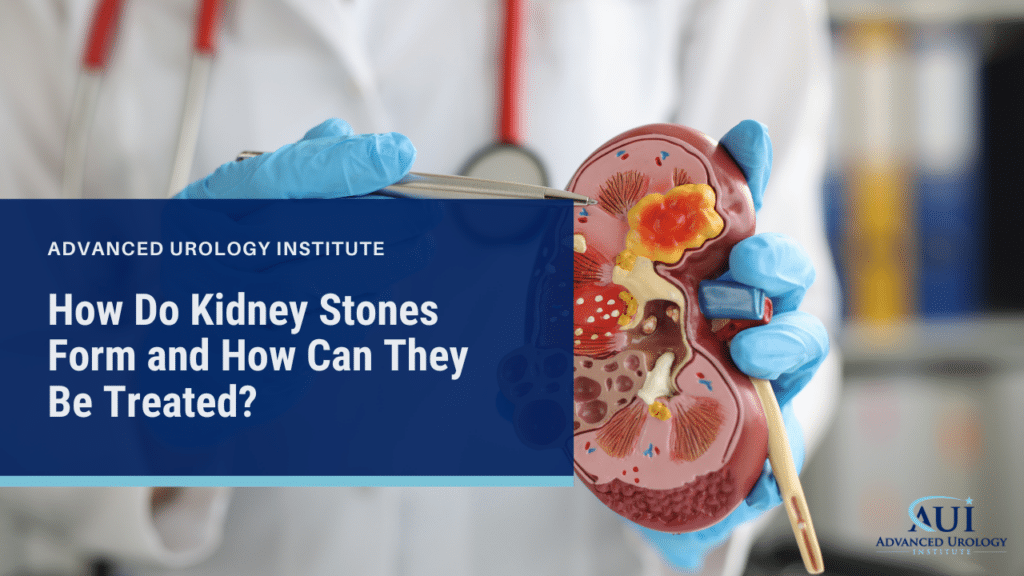How Do Kidney Stones Form and How Can They Be Treated?
Key Takeaways:
- Kidney stones are hard deposits formed from minerals and salts, crystallizing in your kidneys.
- Risk factors for kidney stones include certain medical conditions, specific diets, obesity, and insufficient fluid intake.
- Prevention is better than cure: making dietary changes, maintaining hydration, and taking specific medications can drastically reduce the risk of stone formation.
You might have heard of kidney stones, a prevalent condition affecting millions worldwide. Knowing how they are formed and how to treat them is a significant first step in dealing with this common health problem.
What are Kidney Stones?
Kidney stones are hard deposits formed from minerals and salts, crystallizing in your kidneys. Four main types can be distinguished – calcium, uric acid, struvite, and cystine stones, each with specific characteristics. Factors like your genetics, diet, and hydration status strongly contribute to their formation. High-protein, high-sodium diets, or a family history may increase your susceptibility. However, dehydration is the main culprit that accentuates the risk.

Formation of Kidney Stones
Your kidneys are key to filtering waste and producing urine. However, an imbalance of substances in your urine – too much calcium, uric acid, or not enough water – can lead to the formation of crystals. Over time, these crystals grow into stones, potentially causing extreme discomfort.
Risk Factors and Symptoms
Risk factors include certain medical conditions, specific diets, obesity, and insufficient fluid intake. Recognizing the symptoms is paramount to seeking timely help. Back or abdominal pain, blood in the urine and frequent, often painful urination are common flags to watch out for.
Diagnosing Kidney Stones
Kidney stones are diagnosed through urine and blood tests, and imaging techniques like ultrasounds and CT scans. Early detection is crucial as it affords more effective treatment options.
Treatment Options
A. Small Kidney Stones
Passing small stones naturally with the aid of plenty of fluids and pain management is usually possible. Medication to relax the urinary tract, or in some cases, dissolve the stones, are also on offer.
B. Large Kidney Stones
For large stones, procedures such as Extracorporeal Shock Wave Lithotripsy (ESWL), Percutaneous Nephrolithotomy (PCNL), or Ureteroscopy with laser lithotripsy are employed.
Prevention and Lifestyle Changes
Prevention is better than cure. Making dietary changes such as reducing salt, oxalate, and animal protein, and maintaining hydration can drastically cut the risk of stone formation. Specific medications may also help prevent certain types of stones.
Complications and Recurrence
Complications such as urinary tract infections or even kidney damage can result from untreated kidney stones. Recurrence is a real risk, but adopting lifestyle changes and regular follow-up screenings can significantly reduce this risk.
Conclusion
Considering the prevalence of kidney stones, understanding their formation, and methods of treatment is vital. Equally crucial is seeking medical help for proper diagnosis and treatment.
For those in Florida, the Advanced Urology Institute, the largest urology practice in the state, boasts experienced urologists skilled in diagnosing and treating kidney stones. Their cutting-edge treatment options, including lithotripsy, ensure that you receive the best possible care, minimizing the impact of this common health issue on your life. Kidney stones might be common, but they don’t have to be a thorn in your side. You can trust your care to the professionals at Advanced Urology Institute.
References:
- Kidney Stones | Advanced Urology Institute. (2023, June 7). Advanced Urology Institute. https://www.advancedurologyinstitute.com/conditions-we-treat/kidney-stones/
- Advanced Urology Institute. (2022, May 13). What are the treatment options for kidney stones? | Advanced Urology Institute. Advanced Urology Institute. https://www.advancedurologyinstitute.com/what-are-the-treatment-options-for-kidney-stones/
- Kidney Stones. (2021, December 13). National Kidney Foundation; https://www.kidney.org/atoz/content/kidneystones
- Watson, S. (2017, October 20). 8 Signs and Symptoms of Kidney Stones. Healthline; Healthline Media. https://www.healthline.com/health/symptoms-of-kidney-stones
- NHS Choices. (2023). Overview – Kidney stones. https://www.nhs.uk/conditions/kidney-stones/

